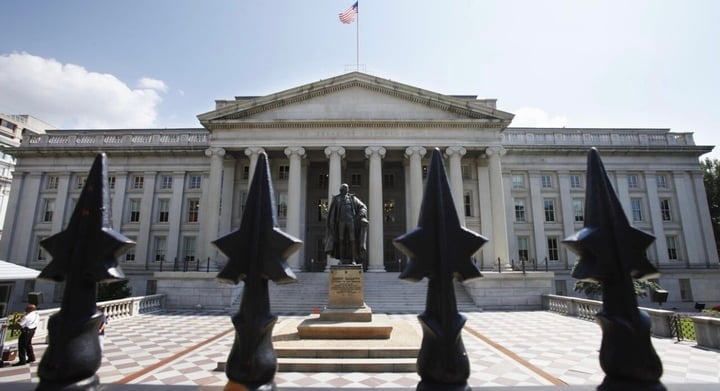According to the US Treasury Department, the country's national debt has surpassed the $36 trillion mark. This is the highest level in history and becomes the world's largest national debt in nominal terms.
The US national debt is the amount of money the federal government owes to creditors. Creditors can be individuals such as US citizens or small foreign investors as well as states and large foundations.

US national debt hits new record. (Photo: AP)
National debt is divided into two parts: intra-government debt and public debt. Intra-government debt is the debt owed by various government agencies, including things like pension funds. Intra-government debt accounts for about 20% of total debt and as of November 21, the debt stood at $7.3 trillion.
Meanwhile, public debt is the debt owed by private entities, individuals and foreign countries. This debt accounts for the remaining 80% of the debt, equivalent to $28.7 trillion as of November 21.
On January 3, the US national debt exceeded $34 trillion for the first time. In nominal terms, the US national debt is the largest in the world.
The US national debt has skyrocketed in recent years under the leadership of President Joe Biden and his predecessor, President Donald Trump, who repeatedly pledged to reduce the debt during his 2016 campaign.
By the time Donald Trump left office, the debt had grown from $8.4 trillion to $27.7 trillion, with more than half of the borrowing related to COVID-19-related costs. This trend has continued into Joe Biden’s presidency.
While borrowing rates slowed slightly in the first half of Joe Biden's term compared to Donald Trump's, they have now accelerated, with the US adding $1 trillion in debt this year alone.
In June, the International Monetary Fund (IMF) sharply criticized the persistent "imbalance" of US fiscal policy, calling Washington's budget deficit and debt ratio a " growing risk" to the entire global economy.
“Such high deficits and debt pose growing risks to the US and global economies, potentially leading to higher fiscal financing costs and increasing risks to maturing obligations,” the IMF said, stressing that “these chronic fiscal deficits represent significant and persistent policy imbalances that need to be addressed urgently.”
Source: https://vtcnews.vn/no-quoc-gia-cua-my-pha-ky-luc-vuot-moc-36-nghin-ty-usd-ar909368.html











































Comment (0)